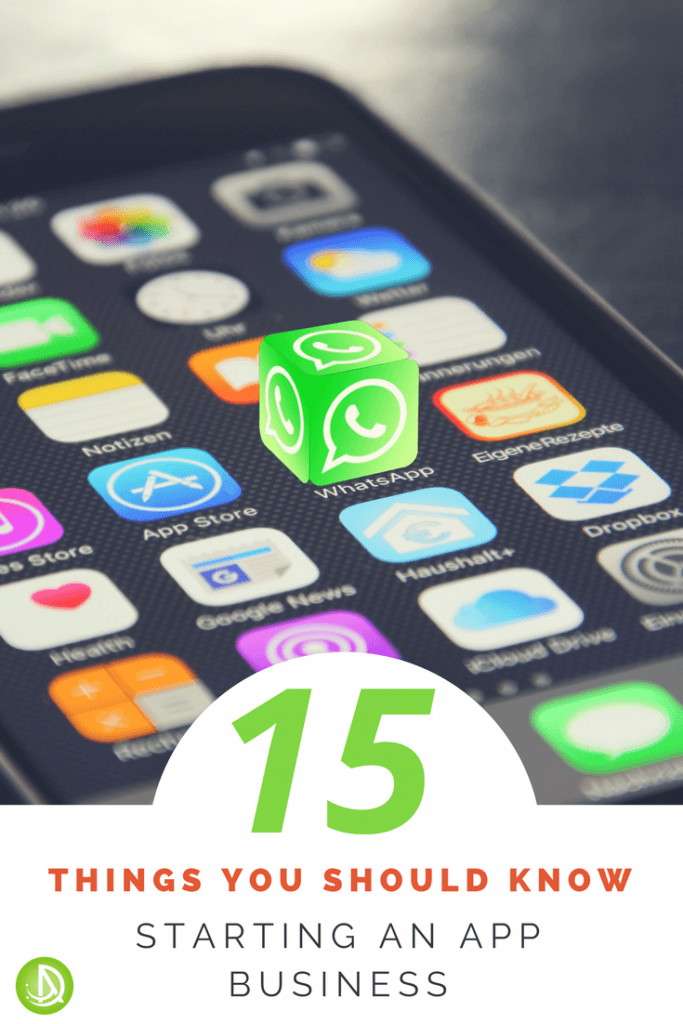Starting an App Business: 15 Things You Should Know
Deciding to build a mobile app is a fantastic decision but tasking one as well. And if you believe you’ve got what it takes to build an app, you’re off to a brilliant start!
The demand for mobile applications has been on the rise in the last couple of years, and many developers are scrambling to try and meet the demand. However, the new steep rise in the market doesn’t mean the mobile app quality should be compromised to be able to hash out fast, low-end products.
Rather, developers should ensure the apps are useful and are actually needed by the end users. Before developing any mobile app, there are a few key areas developers need to focus on. These areas have been highlighted below:

1 – Target Audience
Before creating a mobile app, it is important to have a target audience. Keeping your target audience in mind helps the developers understand how to create the app to fit the user’s lifestyle. Since there are millions of mobile apps in the digital market, it is important for a new app to meet the real needs of its target audience, or else it may flop.
2 – Purpose
Though this one is obvious, it is often overlooked. There needs to be a point in building the app in the first place.
- Is the app meant to boost consumer experience?
- Is it an app for making online financial transactions?
As easy as it looks, some business owners do not give specific reasons for building an app. Having a clear-cut reason for developing an app saves time, money, and may help achieve various business goals.
3 – Choice
There are three major types of mobile apps- native, hybrid and web app.
Choosing an app type from the beginning helps determine the later developments and updates. Your best bet is to hire tech experts to give you advice on the app type that’s best for you.
If hiring tech-experts is a bit of a stretch for your budget, you should carry out extensive market research before making a decision.
4 – Test Run
After the mobile app is created, it is important to test it before launching it into the market. Tests should be run on all the mobile platforms you intend to launch it on. Once testing is complete, bugs can be fixed quickly to prevent future consumer complaints.
5 – Navigation
A notable app feature in the ever competitive digital market is its navigation. The app needs to be both creative and easy to understand. If the app is complicated with too many features, it might have issues delivering high- quality performance.
6 – Budget
Before developing a mobile app, you should create a budget to cover the estimated and unforeseen costs of building the app. From the price of running the app to the cost of paying employees, setting aside a budget helps establish financial accountability.
In this way, your budget rules are fixed, and you won’t overspend. Start by setting aside some funds based on the ballpark number you receive from your developer.
7 – Pre-Marketing Ideas
Often, developers underestimate the power of pre-marketing ideas.
[clickToTweet tweet=”In fact, the success of a mobile app can hinge largely on those same pre-marketing ideas.” quote=”In fact, the success of a mobile app can hinge largely on those same pre-marketing ideas.” theme=”style3″]
Ideally, you should put a lot of effort into the branding process, PR, and pre-launch. Social media campaigns also go a long way in terms of marketing, so they should always be used.
8 – Competition
Identify and research your major competitors. Analyze their app’s strengths and weaknesses, and if you find bugs, your new app should be able to address them. Examine the competition’s app closely to look for what works and what doesn’t as well as their app reviews.
By learning from the competition, this helps generate a new user base, since the customer is king.
9 – Cost
Generally, mobile apps are cheaper than their computer counterparts. Before giving out the paid or upgrade option, consider using in-app purchases instead. If the app must be paid for at all, it shouldn’t cost more than $10.
10 – Design
Designs must be attractive and user-friendly. App design is important and should not be overlooked as it is what helps establish the app in the digital market. Poorly designed apps could discourage potential customers so the better the design, the bigger the audience.
11 – Social Media
From Instagram feeds to Twitter timelines, planning social media engagements before the mobile app’s launch is a great way to see if customers fit into the strategy. Social media followings can have a huge impact on margins. If you’re not social media savvy, it’s recommended you hire a social media manager.
12 – Operating Systems
Mobile apps must be compatible with all the operating systems it is going to be launched on. Whether it’s iOS, Windows, or Android, compatibility is key.
13 – Maintenance
This step is likely the one that’s most forgotten. Due to our constantly evolving technology, app updates are, in some cases, made by the minute.
Creating mobile apps isn’t a one-time thing.
You should always plan ahead for maintenance to ensure your app stays relevant and up to date.
14 – Privacy Policy
Mobile apps often ask its users for sensitive and personal information. To ensure all the information of your users are safe, and in addition to investing in app security, your terms and conditions should be stated plainly.
The user must agree to a privacy agreement. This protects both you as the app provider and your consumers as the end-user.
15 – Value
Finally, developers need to consider the value of the new app to potential customers. Consider the value in terms of solving a problem or making things easier for your ideal user.
- Will the users need the app?
- What value will your app give that similar products haven’t provided?
- Will the new app enhance user experience?
All these questions need to be answered to ensure you’re adding value.
If the new app won’t do any of that, it is likely an unnecessary venture. Failing to review the potential value can often result in the waste of valuable company (or personal) time and resources.
When it comes to building mobile apps, problem-solving, instead of profit generation or idea-chasing, should always be the end goal.
If every one of these tips is considered before the development process begins, your app is all set for a great start. If you’re an app developer who cannot personally attend to all of these items before building the app, hire the trusted team at Dynamik Apps!
Our team will give you an objective and thorough consultation on all of these factors. Remember, there are several mobile apps in the digital would today.
If you’re going to create one, make sure it is seamless.
Let’s make great things happen!
Handy


